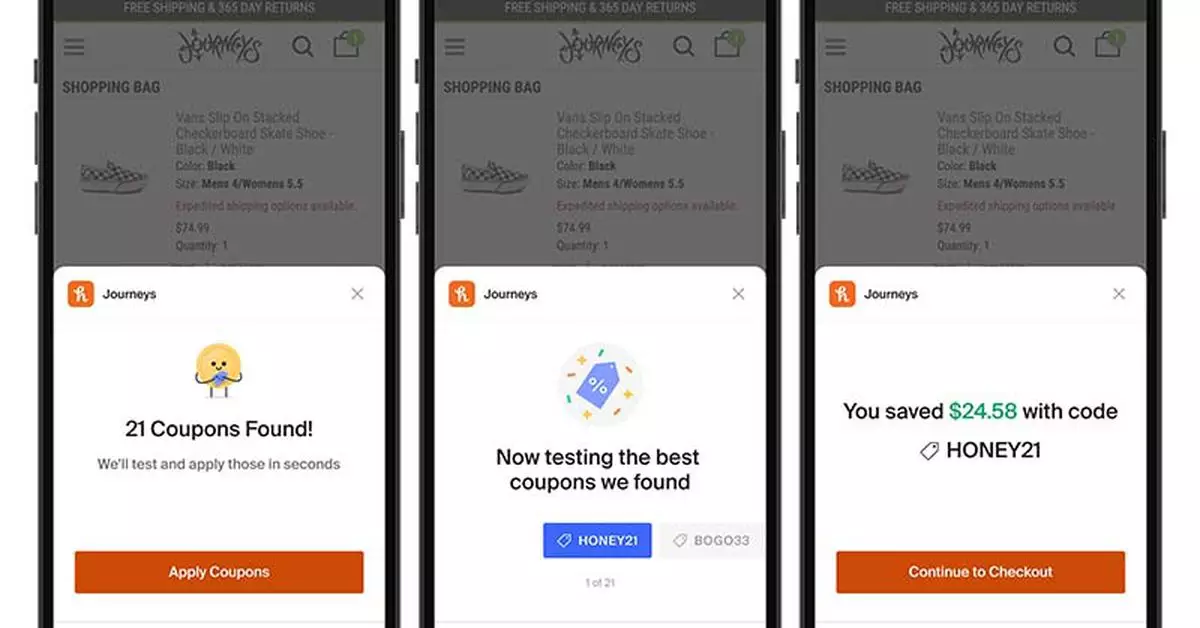In today’s digital marketplace, saving a few bucks during online shopping is paramount for many consumers. As a response, browser extensions like PayPal Honey have surged in popularity, promising to locate the best deals and promo codes effortlessly. While the idea of saving money with just a few clicks sounds appealing, recent criticisms and allegations have surfaced, calling into question the ethical practices behind such extensions. This article provides a nuanced examination of these allegations and explores the user experience surrounding PayPal Honey.
Recent claims levied by YouTuber MegaLag suggest that PayPal Honey may not be as trustworthy as it appears. In a video that has gained significant traction, MegaLag argues that the browser extension can actually be detrimental to influencers and consumers alike. The crux of the argument is that Honey reportedly manipulates affiliate links during the checkout process. Consumers are often unaware that when they click on an influencer’s link, Honey may override that link with its own, subsequently taking credit for the sale.
This would mean that influencers, who work hard to promote products and earn a commission, might find themselves sidelined. Instead of receiving the credit and compensation they deserve, these content creators may lose out due to Honey’s alleged “link hijacking.” Such practices raise ethical questions about the integrity of affiliate marketing, especially considering that Honey is marketed as a consumer-friendly tool.
Alongside the accusations regarding affiliate practices, MegaLag also critiques Honey’s performance in delivering genuine deals. The extension is designed to detect available discount codes during the checkout process. However, users frequently find that the extension either fails to generate a usable code or reverts to suggesting Honey-branded discounts that may not be the best available option. The purported promise of finding “every working promo code on the internet” has, according to some users, proven to be less reliable than hoped for.
The dissatisfaction stems from experiences where simple internet searches return superior offer results compared to the codes generated by Honey. This leads to the question: is the convenience of using Honey worth the potential compromises in savings?
In response to the allegations, Josh Criscoe, PayPal’s Vice President of corporate communications, asserted that Honey adheres to industry standards, including practices like last-click attribution that are common within affiliate marketing. However, industry watchdogs and some influencers maintain skepticism about Honey’s policies. There are claims that despite following industry norms, the outcomes for influencers are unjust, as many discover that their hard-earned affiliate sales are disappearing into Honey’s pool.
Such claims are not isolated; a growing number of posts on social media platforms echo this sentiment. Users recommend employing a different browser when utilizing Honey for fear of losing potential earnings from influencer-promoted affiliates. Prominent tech influencer Linus Media Group even severed ties with Honey over these practices. This indicates a larger schism within the community regarding respect for content creators and the transparency expected from such tools.
In an ecosystem where quick convenience often trumps ethical considerations, PayPal Honey represents a crossroads for many shoppers. On one hand, it offers an intuitive solution for saving money with minimal effort. On the other, questions linger about how these savings are achieved. The persistent doubt over Honey’s practices is growing, prompting both consumers and influencers to reconsider their relationships with the tool.
While many users cherish the simplicity and ease of accessing discounts through Honey, others find the potential ethical compromises too large a sacrifice for convenience. The debate surrounding Honey encapsulates a broader dilemma in the digital marketplace—where the lines between consumer benefits and ethical business practices are blurring.
As consumers rely on technology for everyday transactions, it’s vital to stay informed about the tools we use. PayPal Honey’s allegations underline an essential conversation on the balance between convenience and ethical integrity. As discussions continue and more evidence emerges, shoppers must weigh the perceived savings against the costs of endorsing companies that may inadvertently undermine the very influencers they appreciate. The choices we make today could shape the landscape of online shopping in the future, reminding us that being a savvy shopper often involves more than just finding the best deal.

